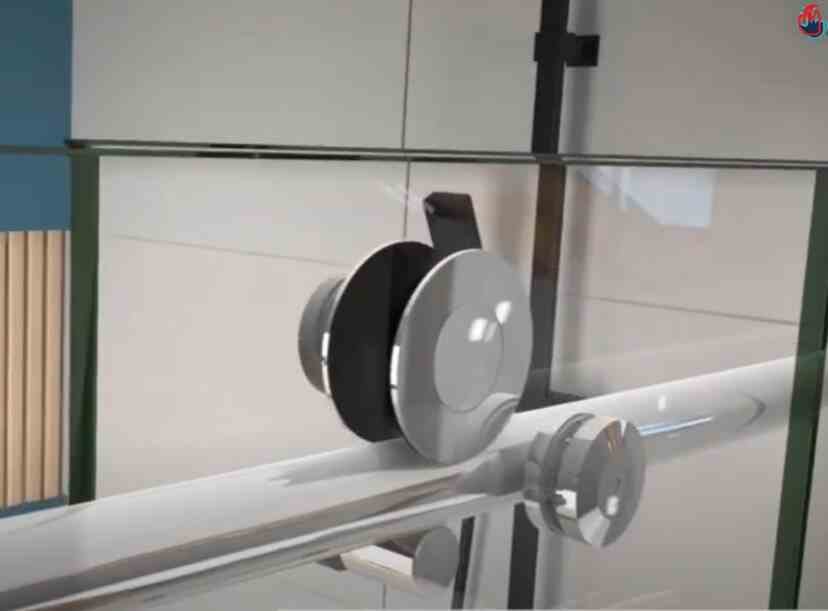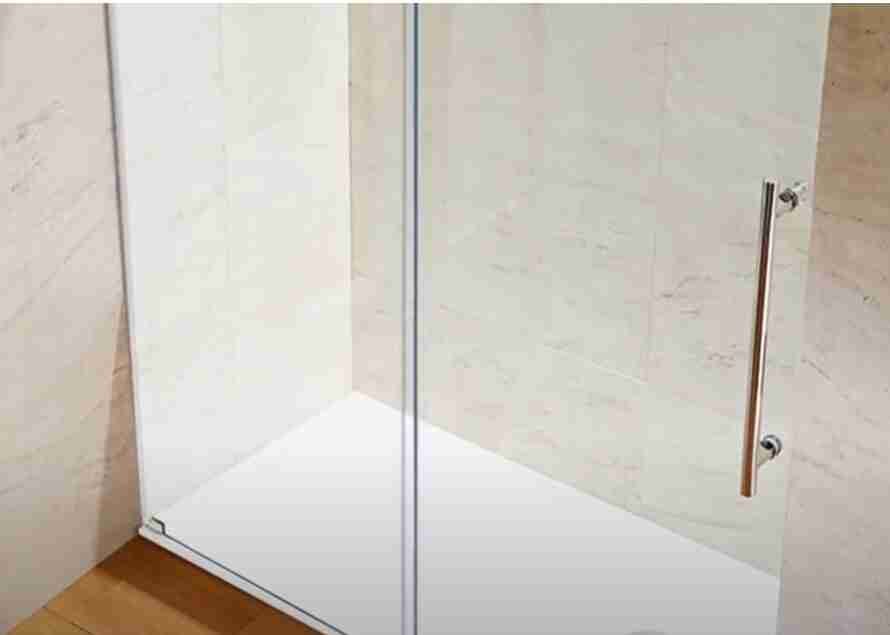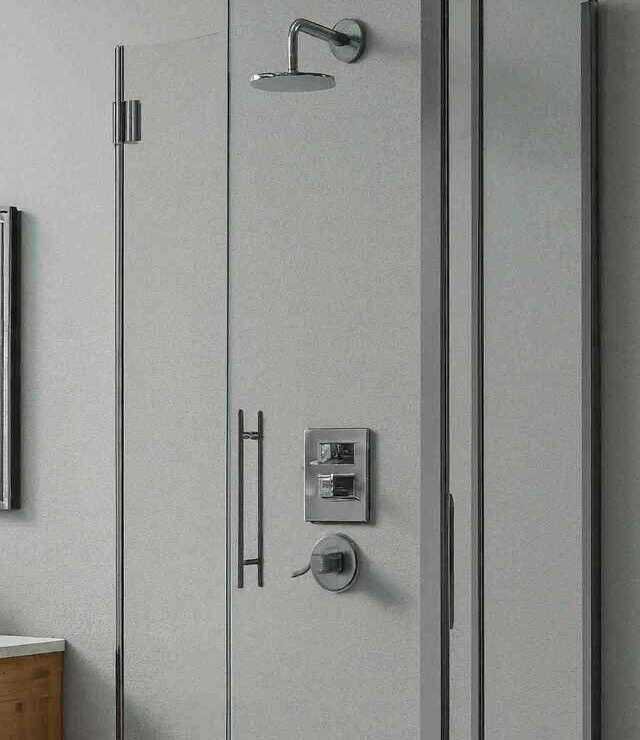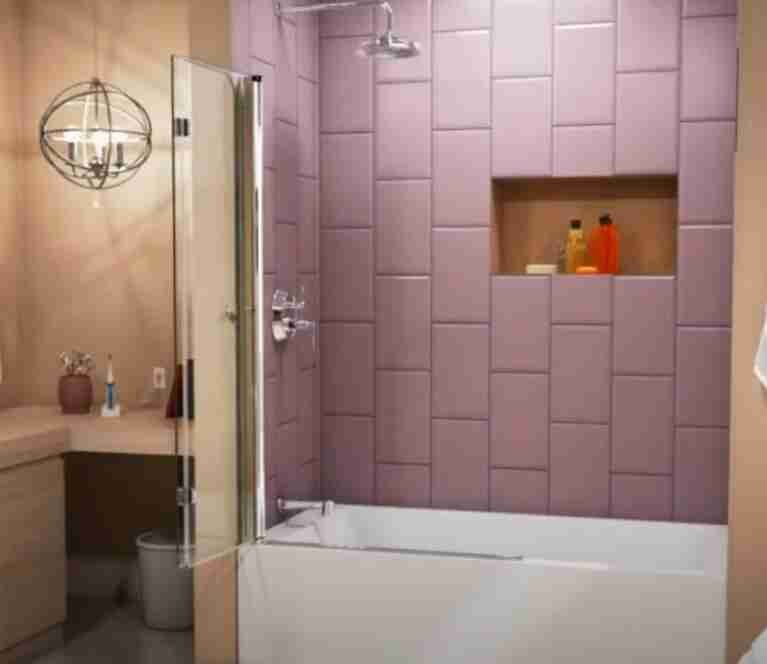Your shower door is more than just a functional element in your bathroom; it’s a part of the overall design aesthetic. The right door can elevate your space, making it feel luxurious and modern, or it can create a clean, minimalist look.
But with so many styles and materials to choose from, selecting the perfect shower door can feel overwhelming. In this article will guide you through everything you need to know about bathroom shower doors, from popular styles to helpful installation tips.
Key Points: Bathroom shower Doors
- Different types of shower door styles (Hinged, Sliding, Bypass, Bi-fold, Frameless, etc.)
- Factors to consider when choosing a shower door (Material, size, functionality, etc.)
- Benefits of different door styles
- Installation considerations (DIY vs. professional)
- Frequently Asked Questions (FAQ)
Table of Contents

Popular Shower Door Styles
There’s a shower door style to suit every bathroom design and functionality need. Here’s a breakdown of some of the most popular options:
Hinged Doors:
A classic choice, hinged doors swing open on one side. They offer a wide opening for easy entry and exit but require extra clearance space in front of the shower.
“Hinged doors are perfect for spacious bathrooms where there’s no need to worry about limited floor space,” says Sarah Jones, a bathroom designer.
Sliding Doors:
A space-saving option, sliding doors glide on a track, opening, and closing parallel to the wall. They’re ideal for smaller bathrooms or alcove showers.

Bypass Doors:
Similar to sliding doors, bypass doors feature two or more panels that slide past each other on separate tracks. They offer a wider opening than single sliding doors.
Bi-fold Doors:
Bi-fold doors consist of multiple panels that fold inward or outward against the wall. They provide a generous opening but might not be suitable for all shower configurations.
Frameless Doors:
Frameless doors provide a sleek, contemporary appearance with minimal hardware. They create a sense of openness and make the bathroom feel larger. However, they require thicker tempered glass for stability and are typically more expensive.
Choosing the Right Shower Door
Here are some key factors to consider when selecting your shower door:

Material:
Glass: The most popular choice, offering clarity, durability, and ease of cleaning. Consider tempered glass for safety.
Acrylic: A more affordable option than glass, but it can scratch more easily.
Size:
Measure your shower opening carefully to ensure the door fits properly. Consider the door swing or slide mechanism and how it will impact available space.
Functionality:
Think about how you’ll use the shower. Do you need a wide opening for easy access? Sliding doors might be a better choice if space is limited.
Style:
Consider the overall design of your bathroom. Frameless doors offer a modern look, while framed doors can add a classic touch.
Benefits of Different Door Styles
| Shower Door Style | Benefits | Drawbacks |
|---|---|---|
| Hinged | Wide opening, easy entry/exit | Requires clearance space in front of the shower |
| Sliding | Space-saving, good for small bathrooms | May not offer the widest opening |
| Bypass | Wider opening than single sliding doors | Requires more wall space for tracks |
| Bi-fold | Generous opening, unique aesthetic | May not work for all shower configurations |
| Frameless Doors: | A sleek, modern look, makes the bathroom feel larger | require thicker tempered glass for stability and are typically more expensive. |
bathroom Shower door installation
Installing a shower door can be a complex task, especially for frameless models. While some homeowners might be comfortable tackling the project themselves, it’s often recommended to hire a professional installer to ensure a proper fit and watertight seal.
Here are some things to consider for DIY installation:
- Tools and Expertise: You’ll need specific tools like a level, drill, and silicone sealant.
- Time Commitment: Installing a shower door can take several hours, depending on the complexity of the system.
- Warranty: DIY installation might void the door’s warranty.
Here are some additional tips: for bathroom shower doors
- Consider your budget: Shower doors range in price depending on the style, material, and hardware.
- Think about maintenance: Frameless doors might require more cleaning to maintain their sleek look.
- Look for inspiration: Browse online resources and bathroom magazines for design ideas. Don’t be afraid to experiment with unique styles!
Remember, a well-chosen shower door can transform your bathroom into a spa-like haven.
For professional installation:
If you decide to hire a professional installer, get quotes from several qualified contractors and ensure they are licensed and insured.
Taking good care of your shower door:
- Regularly clean the glass with a non-abrasive cleaner to prevent soap scum buildup.
- Apply a water-repellent coating to the glass for easier cleaning and to help prevent water spots.
- Inspect the door frame and seals periodically for any signs of wear or leakage.
By following these tips, you can ensure your beautiful new shower door lasts for years to come.
Conclusion
According to industry experts, the most commonly used shower door for bathrooms is the sliding shower door, also known as a bypass door. Here’s why:
- Space-saving: Sliding doors require minimal clearance space in front of the shower compared to hinged doors. This makes them ideal for smaller bathrooms or alcove showers where every inch counts.
- Ease of use: Sliding doors glide smoothly on tracks, allowing for easy opening and closing. This is especially convenient for individuals with limited mobility.
- Versatility: Sliding doors come in various sizes and finishes to suit different bathroom styles and budgets.
- Affordability: Compared to frameless doors, sliding doors are generally more affordable due to simpler construction and materials.
However, the best shower door style for your bathroom depends on your specific needs and preferences.
Choosing the right shower door can significantly impact the aesthetics and functionality of your bathroom. By understanding the different styles, materials, and installation considerations, you can make an informed decision that fits your needs and budget.
H2: Frequently Asked Questions (FAQ)
Q: What is the best material for a shower door?
A: Tempered glass is the most durable and safest option. Acrylic is more affordable but can scratch more easily.
Q: Can I install a shower door myself?
A: It depends on your comfort level and DIY skills. Frameless doors are especially challenging to install. Consider hiring a professional for a guaranteed watertight seal.
